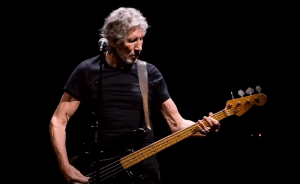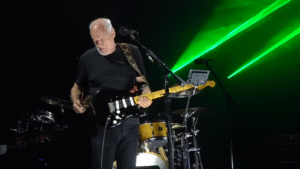10 Bands Accused of Lip-Syncing And How They Responded

via Flip DaBoid / YouTube
Rock ‘n’ roll is synonymous with electrifying live performances, raw energy, and genuine authenticity. However, throughout the history of music, there have been instances where even the most iconic classic rock bands found themselves caught in the crosshairs of accusations related to lip-syncing. While some bands embraced the art of mimicry, others rebelled against the idea, leading to unforgettable moments that left an indelible mark on the rock landscape.
Iron Maiden – 1986
In a moment that epitomized the spirit of heavy metal rebellion, Iron Maiden took a stand against lip-syncing on the German TV program P.I.T. Instead of conforming, they exchanged instruments with a touch of absurdity while the backing track rolled on seamlessly. Iron Maiden’s refusal to comply showcased their dedication to genuine live performances even in the face of expectations.
Nirvana – 1991
As Nirvana’s star soared, they were asked to perform “Smells Like Teen Spirit” on Top of the Pops. Kurt Cobain’s resistance led to a unique rendition with alternative lyrics, expressing his discomfort with the situation. Cobain’s defiance and alternative vocal stylings turned what could have been a mundane performance into a powerful statement.
Alan Jackson – 1994
Alan Jackson’s ingenious response to lip-syncing demands during a performance showcased a drummer without sticks. In a subtle yet impactful act of protest, the drummer swung his arms, mimicking drumming motions without the necessary sticks. Jackson’s refusal to play along demonstrated his commitment to authenticity and honesty.
Muse – 2009
English rock band Muse decided to counter lip-syncing expectations by swapping instruments during a performance on the Italian television show Quelli che il Calico. This playful act demonstrated their refusal to fake it and led to a memorable incident that stirred both intrigue and controversy.
Oasis – 1995
Oasis made their lip-syncing protest on Top of the Pops unforgettable by having Liam and Noel Gallagher switch vocal and guitar spots. This act of rebellion added a layer of defiance to their performance, demonstrating that the band was not willing to conform to lip-syncing norms.
Johnny Rotten & Public Image LTD -1980
Johnny Rotten and Public Image LTD’s appearance on American Bandstand in 1980 showcased their refusal to pantomime. Instead of performing, Rotten and the band embraced chaos by interacting with the audience and coaxing them onto the stage. The segment turned into a 10-minute display of television madness that challenged the show’s expectations.
The Stranglers – 1977
Punk band The Stranglers turned a lip-syncing request into a memorable performance by dismantling the stage during their Top of the Pops appearance. Lead vocalist Jean-Jacques Burnel’s exaggerated miming of the lyrics evolved into a spectacle that defied the lip-syncing norm.
J.J. Cale – 1972
J.J. Cale’s refusal to lip-sync during an American Bandstand appearance is etched in music history. Despite pleas from producers, Cale walked away, leaving behind a legacy of standing up against inauthenticity and maintaining the integrity of his music. Although there is no recorded footage of the event, The New York Times commemorated the incident through a cartoon following J.J.’s passing.
Motley Crue – 2023
Even in the modern era, lip-syncing controversies persist. Mötley Crüe faced accusations of performing to pre-recorded tracks during their concerts. Video evidence surfaced, capturing moments where lead vocalist Vince Neil’s microphone was far from his mouth while his vocal track played flawlessly.
Kiss – 2022
While classic rock bands often shy away from lip-syncing accusations, some incidents have managed to shed light on the reality of live performances. Legendary rock band Kiss, once vocal about their opposition to pre-recorded material, faced an ironic twist during their 2022 tour. An on-stage mishap led to a timing disruption, exposing pre-recorded backing tracks and revealing the complexity of staging live shows. The incident not only highlighted the challenges of maintaining authenticity in large-scale productions but also sparked conversations about the evolving landscape of live performances.





















